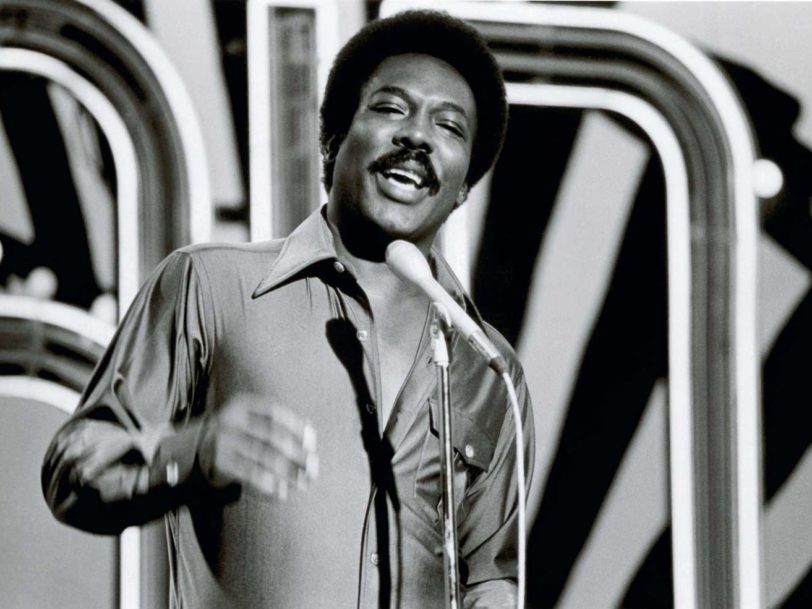Wilson Pickett was the boss of badass soul in the 60s, but his ego was not so large that he refused to give credit where it was due. You might assume there was no room for anybody else on a Wilson Pickett record – unlike other soul legends, such as Otis Redding and Marvin Gaye, he didn’t sing duets at the peak of his stardom – but Pickett delivered a shout-out to Solomon Burke during a “sermon” at the start of his brilliant version of Everybody Needs Somebody To Love. Burke had co-written the song and sung it first just a couple of years previously, in 1964. But this didn’t bother the Wicked Pickett. He knew how good he was. They crowned Burke the King Of Rock And Soul, but Pickett could deliver his song like nobody else. It’s like he was saying: who’s the King now?
Pickett’s version of Everybody Needs Somebody To Love was a US hit, entering the charts on 27 February 1967. He’d recorded it the previous year at FAME Studios in Muscle Shoals, Alabama. The sessions included then-anonymous musicians who are now seen as legends, including Chips Moman, Spooner Oldham and Tommy Cogbill, whose subtle approach to soul built hits for Aretha Franklin (Do Right Woman, Do Right Man), James Carr (Dark End Of The Street) and Percy Sledge (When A Man Loves A Woman). But when they needed to rock, they really could. Everybody Needs Somebody To Love hits hard behind Pickett’s mighty voice. It appeared on his 1967 album, The Wicked Pickett, which was also home to his celebrated version of Mustang Sally.
Gospel roots
According to Solomon Burke, he first performed Everybody Needs Somebody To Love in church with a backing band that included a formidable brass section. It’s easy to imagine it as a handclapping, get-happy-for-the-Lord kind of tune. When Burke released his version, the writing credits also included producer Bert Berns and Atlantic Records A&R executive and producer Jerry Wexler. Burke claimed he’d given them part of the song’s publishing to encourage them to promote the record; Wexler recalled all three writing the song together in Bert Berns’ home. Whatever the truth of it, Burke’s record was not a massive pop hit, but had a lasting magic, perhaps due to the preaching spoken-word intro, which has been replicated and adapted many times since. The song has a longer tail than a comet, with numerous artists unable to resist its addictive three-chord riff and universal gospel-inspired message.
Everybody rocks out
Everybody Needs Somebody To Love soon broke out of the soul genre. The Rolling Stones featured it on their Got Live If You Want It! EP, and a studio recording of the song opened their second UK album, 1965’s The Rolling Stones No.2. This prompted numerous wannabe Stones across the US to adopt it: 1966 saw garage band versions by The Bad and Knights Of Day, the former more punk-sounding and rough-edged than the latter. Though somewhat more psychedelic in intent, The 13th Floor Elevators included this soul gem in their set, though the version on their 1968 Live album is a studio cut with applause dubbed on. Thee Midnighters delivered the toughest garage-rock cut, on their Giants album in 1969. The spoken-word introduction, “I’m so glad to be here tonight,” was clearly difficult to resist for singers who could not have been further removed from the black church – even a pioneering 60s Japanese rock band, The Tigers, included it on a live album as part of a Rolling Stones Medley.
Jamming giants of rock
The Stones were not the only rock giants tempted by Burke’s song. Led Zeppelin, whose stellar career was built on a foundation of blues, soul and R&B, occasionally included it in the jam section of Whole Lotta Love they performed live in the early 70s. Jerry Garcia of Grateful Dead included it in his sets, too, as heard on his posthumous live album Shining Star. But the song won an even bigger endorsement from an unlikely quarter thanks to the 1980 blockbuster movie The Blues Brothers (1980), in which Dan Ackroyd and John Belushi lived out every soul fan’s fantasy by appearing with the legends of the music. The soundtrack album on Atlantic was a runaway success, featuring everyone from Ray Charles to James Brown and Aretha Franklin, and as a certified soul anthem, Everybody Needs Somebody To Love was a shoo-in for the tracklist. Perhaps it was no coincidence that Phil Collins donned a pork pie hat and shades to perform the song with Genesis in a medley with their own Turn It On Again at Knebworth in 1990.
The message still holds
That takes us back to Wilson Pickett: Genesis’ medley also included another of his truly great records, In The Midnight Hour. While Solomon Burke kicked off the whole saga, and everyone from Westlife to Dusty Springfield have included Everybody Needs Somebody To Love in their live repertoire, has anyone delivered a better version than the Wicked Pickett’s stunning mid-60s interpretation? It still sounds as though Pickett really is so glad to be here tonight, to be in your wonderful city, alive and kicking, full of soul. And the message Solomon Burke gave him remains true: everybody needs somebody to love.
More Like This
Vogue: The Story Behind Madonna’s Most Celebrated Video
As iconic as it gets, the promo video for Madonna’s Vogue single proved that the “Queen Of Pop” was all about making high art.
What’s Love Got To Do With It: Behind Tina Turner’s Universally Adored Anthem
A true 80s mega-hit, What’s Love Got To Do With It defined Tina Turner’s career, if not her outlook on life…
Be the first to know
Stay up-to-date with the latest music news, new releases, special offers and other discounts!




